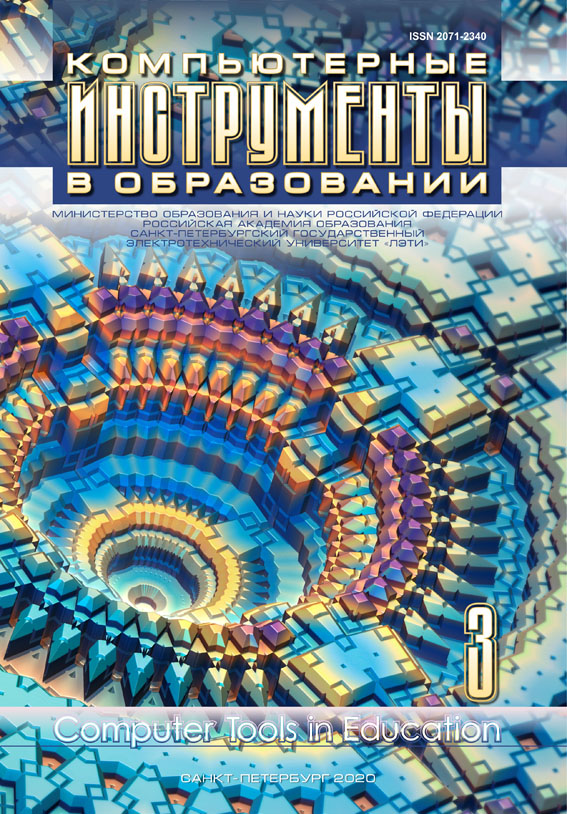On one approach to organizing rapid prototyping of robots under rigid constraints
Abstract
The paper describes an approach to the rapid prototyping of ground-based group robotic systems by small teams of developers in a short time. Prototyping is carried out by sequentially constructing representations of various levels of abstraction. It is demonstrated that the main resource costs in the transition between these levels can be reduced by utilizing standard behavioral models of robots and applying libraries of typical software design solutions. Behavioral models based on the mechanism of meta-automata can use abstract implementations at the mathematical, simulation and physical levels to obtain quite practical and efficient solutions. ROS is used as the basic tool for developing control systems and conducting physical modeling on lower levels. The developed approach is demonstrated on the example of a transport problem solved by robots with the simplest sensors without global navigation.
References
Asada H., Leonard J. Introduction To Robotics [Электронный ресурс]. URL: https://ocw.mit.edu/courses/2-12-introduction-to-robotics-fall-2005/ (дата обращения: 18.08.2024).
Asokan T., Ravindran B., Vasudevan K. Introduction to robotics [Электронный ресурс]. URL: https://onlinecourses.nptel.ac.in/noc20_de11/preview (дата обращения: 18.08.2024).
Cyberbotics Ltd. Webots [Электронный ресурс]. URL: http://www.cyberbotics.com/.
Kilpatrick W. H. The Project Method // Teach. Coll. Rec. 1918. Т. 19. № 4. С. 1–5.
Lentin J., Johny A. Robot Operating System for Absolute Beginners. New York: Apress, 2022. 295 с.
Microsoft Robotics Developer Studio O. R. Microsoft Robotics Developer Studio.
NVidia. NVidia Isaak [Электронный ресурс]. URL: https://developer.nvidia.com/isaac (дата обращения: 18.08.2024).
Pavlov D. A. Should we teach Python at universities? // Comput. Tools Educ. 2024. № 1 SE-Programming practice.
Reynolds C. W. Flocks, herds, and schools: A distributed behavioral model // Proc. 14th Annu. Conf. Comput. Graph. Interact. Tech. SIGGRAPH 1987. 1987. Т. 21. № 4. С. 25–34.
RoboDK. Моделирование и программирование в RoboDK [Электронный ресурс]. URL: https://robodk.com/ru/simulation (дата обращения: 18.08.2024).
Карпов В. Э., Ровбо М. А., Воробьев В. В. О некоторых аспектах применения автоматных моделей в групповом управлении // Мехатроника. Автоматизация. Управление. 2023. Т. 24. № 4. С. 171–180.
Карпов В. Э., Ровбо М. А., Овсянникова Е. Е. Система моделирования поведения групп робототехнических агентов с элементами социальной организации Кворум // Программные продукты и системы. 2018. Т. 31. № 3. С. 581–590.
Карпова И. П. Об одном биоинспирированном подходе к ориентации роботов, или настоящий «муравьиный» алгоритм // Управление большими системами. 2022. Т. 96. С. 69–117.
Клубничкин В. Е. и др. РАЗРАБОТКА УЗЛА СОЧЛЕНЕНИЯ ЛЕСНОЙ ПОГРУЗОЧНО-ТРАНСПОРТНОЙ МАШИНЫ // Лесотехнический журнал. 2021. Т. 10. № 4. С. 217–226.
Уракова Е. А., Быстрова Н. В., Грашина П. А. Сущность проектного подхода в профессиональном образовании // Проблемы современного педагогического образования. 2020. Т. 69. № 4. С. 276–278.
Gazebo, Official Resource [Электронный ресурс]. URL: https://gazebosim.org/ (дата обращения: 11.08.2024).

This work is licensed under a Creative Commons Attribution 4.0 International License.







